2019 Hand in Hand in Hangzhou
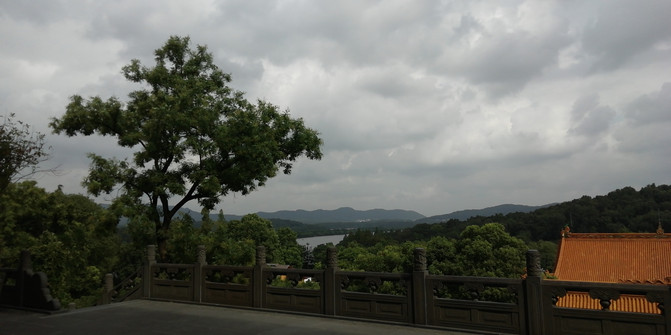

In late August 2019, seeing that my son was about to start school and my vacation was about to end, I decided to go to Hangzhou, a paradise on earth, for two days on the weekends of August 24th and 25th.
Early in the morning on August 24, we took the regular express train to Hangzhou City Station. This is the old railway station in Hangzhou. It is located in the downtown area. In the past, the old railway station always gave people a dilapidated and old feeling. However, when I saw it this time, it gave me the most direct feeling that I saw it after leaving the station. The toilet has become bigger and cleaner.
We left the train station at nine o'clock, and we walked to the Wuliuxiang Historical District in a quarter of an hour. At Ma Road Crossing, I habitually looked up to find traffic lights to cross the road, and suddenly found that there were no traffic lights here, and when you crossed the road. Hangzhou's cars are impressive.
When we were walking in the Wuliu Lane historical district surrounded by greenery, we looked up and saw a sign on a flagpole reading health guidelines. I remember there is a saying that you can't eat too many eggs, and that you only need to eat four eggs a week. The Longevity Health Guide has replaced the old slogans such as the Five Talks and Four Beauties and No Spitting Everywhere in memory.
Walking all the way down the street, when I looked up, I suddenly saw Xileng Printing House standing quietly in front of me. There is a sign at the door called Hangzhou Painting and Calligraphy Society. Xileng Printing Press has been more than 100 years since its establishment in 1904. It is a representative organization for the inheritance of Chinese seal cutting. It is known as the number one club in the world. Successive presidents include Wu Changshuo, Ma Heng, Zhang Zongxiang, Sha Menghai, Zhao Puchu, Qi Gong, etc. Like a small red mud mark, this building is also exquisite and small. It is like a small red mark covering the last corner of the painting and calligraphy. This building is also covered in a corner of the historical district just like that. It is simple, simple, yet exquisite.

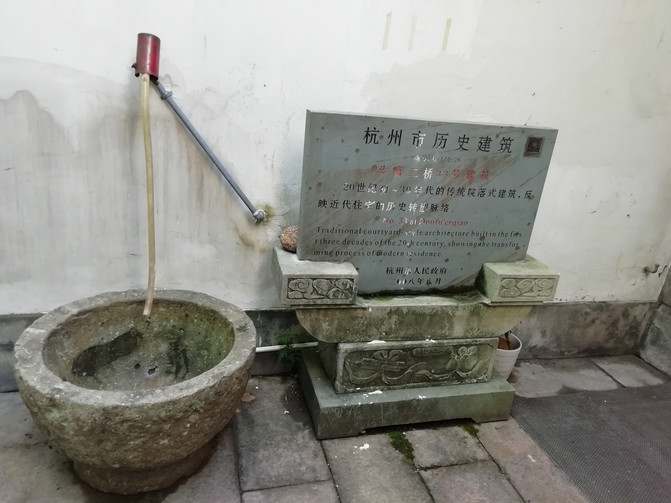
After leaving the alley, I turned right and smelled of wormwood. There are several traditional Chinese medicine clinics open on the roadside here. The special smell of traditional Chinese medicine can be heard from time to time from the antique buildings. Time seems to be flowing back, taking us slowly to smell the magic of traditional Chinese medicine.
Continue on to come to a big road. A road sign attracted my attention: Niu Si Lane. Snow-white walls stand tall behind the road sign. There is the former residence of Hu Xueyan, the richest man in China, a red-roof businessman in history. Adult tickets can be purchased here for both exports and imports. If you want to buy half-price student tickets, you have to go to the entrance.

From 1872 to the Tongzhi period of the Qing Dynasty in 1875, in three years, Hu Xueyan, who started his career from Fukang Bank, spent money to build this large house, covering an area of 10.8 acres or approximately 7230 square meters. It includes 13 buildings and a garden with rockery, karst caves, flower halls and large pools. Carved beams and painted columns, various exquisite and precious furniture uses precious woods such as nanmu acid branch wood, rosewood, etc.


The entire former residence occupies a square shape, but only one piece in the northwest corner is missing. It was just because there was a family in the northwest corner that refused to accept demolition at that time, and Hu Xueyan did not forcibly levy and demolish it, so such a shortcoming was left.

However, the world is unpredictable. Hu Xueyan, who has married more than a dozen concubines and has more than a dozen children, has only enjoyed such a house for eight years. No wonder Zhu Rongji visited Hu Xueyan's former residence in 2002. He wrote that Gu Yun was rich for no more than three generations, due to the resourcefulness of a red-topped merchant. In only ten years, I was arrogant and extravagant.
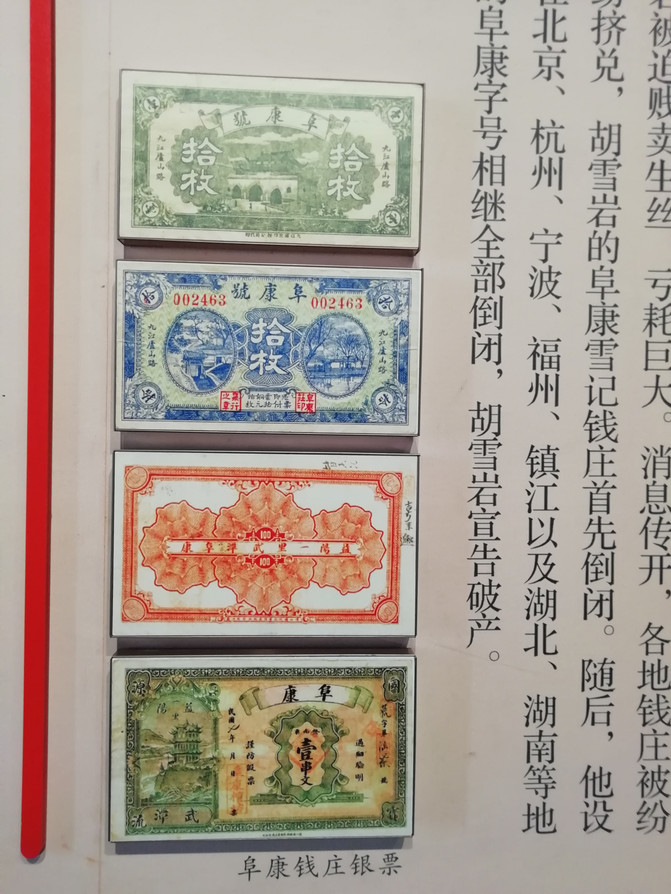
In my eyes, such a building, such a house, such a layout and arrangement, regardless of the materials used. But in terms of design and planning, it reflects China's cultural traditions, humanistic thoughts, and Hu Xueyan's insights at that time. For example, the Hundred Lion Building used to have only two floors high, which is equivalent to our current main house. Using lions is to suppress evil spirits. Only mothers, old ladies and wives are qualified to live there. This reflects China's filial piety and family hierarchy concept. Hu Xueyan's three-dimensional painting walls and servant call system reflect the breadth of his knowledge at that time. The design of the large and small kitchens reflects the origin of Chinese medicinal cuisine. Hand-shaped doorrings, exquisite doors and windows, cement carvings. The laying of stones on the road reflects China's unique traditional art.

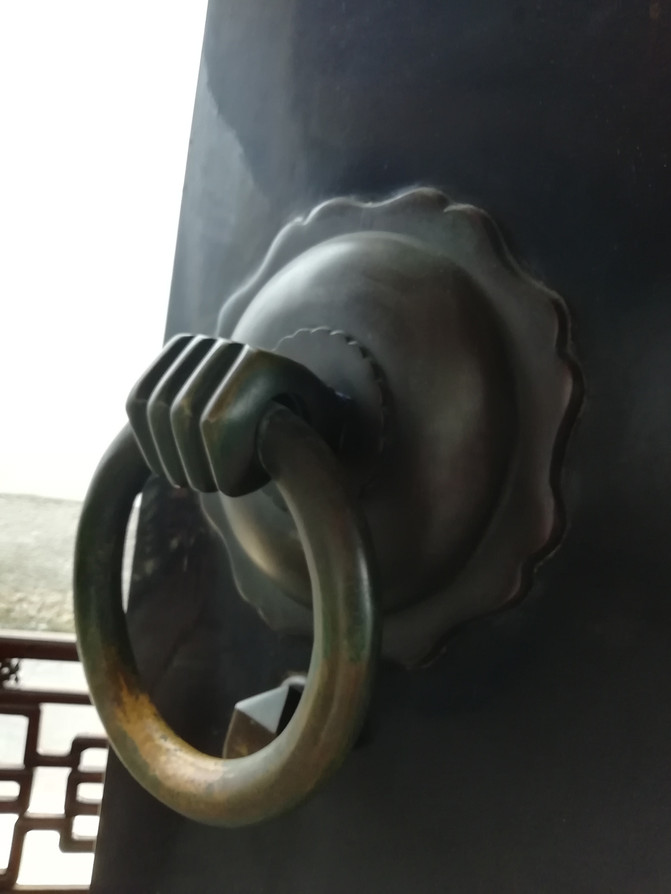


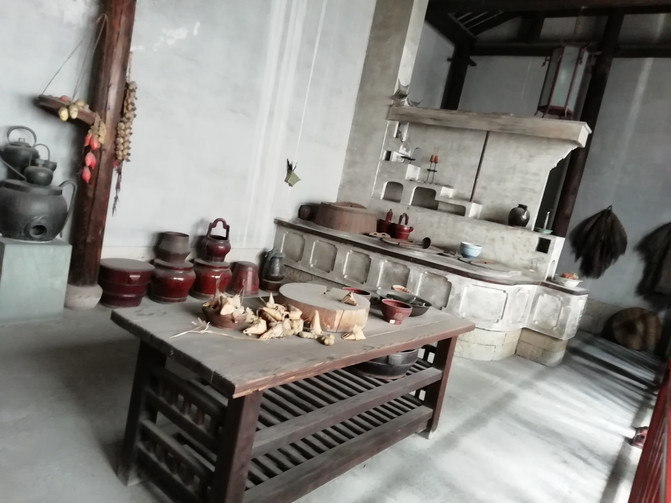
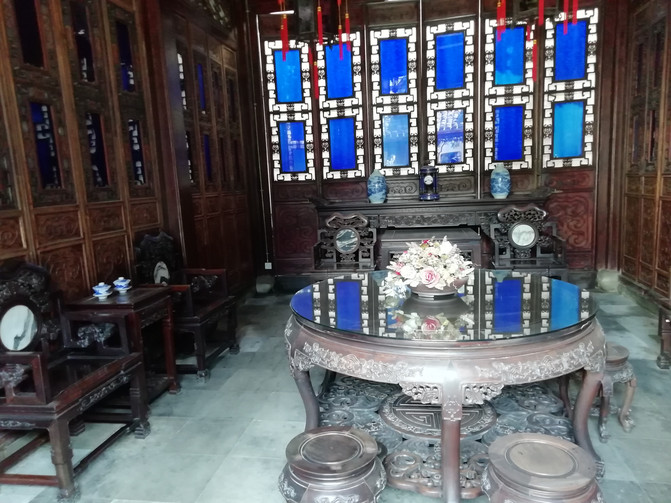
The cave in Hu Xueyan's home is said to be the largest artificial cave in China at that time. Walking into it twists and turns. The goldfish in the pool were golden and surprisingly big.


Come out of Hu Xueyan's former residence and walk forward. You can see the Hangzhou Nine-Wall Series, and we are walking on the sidewalk. I saw the three-character scripture written on the snow-white wall and accompanied by pictures. Painting and calligraphy complement each other. It was very eye-catching.
At 1:30 in the afternoon, we had a delicious meal at Xinfeng Snack. Shrimp meat wonton, small steaks, duck blood soup. The vermicelli soup is very delicious. We also tasted the special flavor big buns, chicken dumplings, and sugar sawn. One word: Good!

After lunch, we walked slowly and soon arrived at the well-known Huqingyutang. Such a pharmacy can really be said to be an ancient monument. There is elegance everywhere, and there is no rush or rush. It was neither warm nor hot. There is a portrait of Hu Xueyan and free tea in the hall.


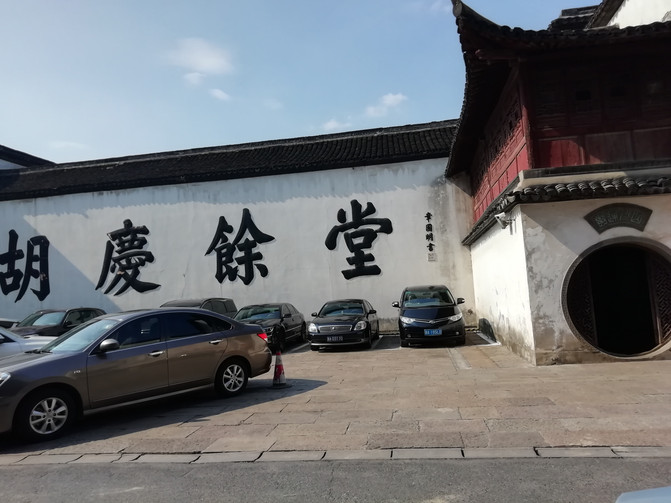
Next to it is the Museum of Traditional Chinese Medicine. Primary and secondary school students can visit for free. I think it's a really good idea. Chinese traditional Chinese medicine is actually the greatest wealth left to us by our ancestors. Unfortunately, the inheritance has been divided between generations.
Walking out is the north hall of the Hangzhou Museum. There are free shipping bags with many ancient pottery displayed in them. Painting and calligraphy, etc. I sat down and watched the projection painting Chinese paintings, but I didn't realize that it was time to close the museum. I didn't have time to go to the South Pavilion to see it.
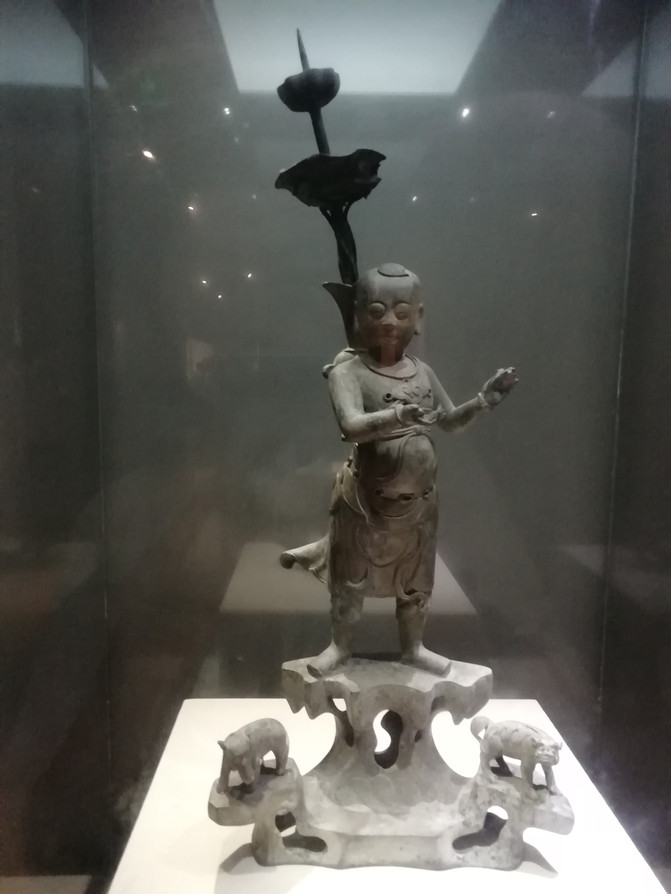

The museum closed at 4:30. As soon as I came out, I saw a line in front of the Yonghe Soymilk King. It turns out that he has a soy milk ice cream cone for one yuan here. This is so creative!
Not long after, we arrived at Haagen Dazs in West Lake Yintai. The son was very happy and ate his favorite sweet tooth. Come out after afternoon tea. We went in line again to buy a one-yuan soy milk ice cream cone. This taste is indeed very special. One word: cold!

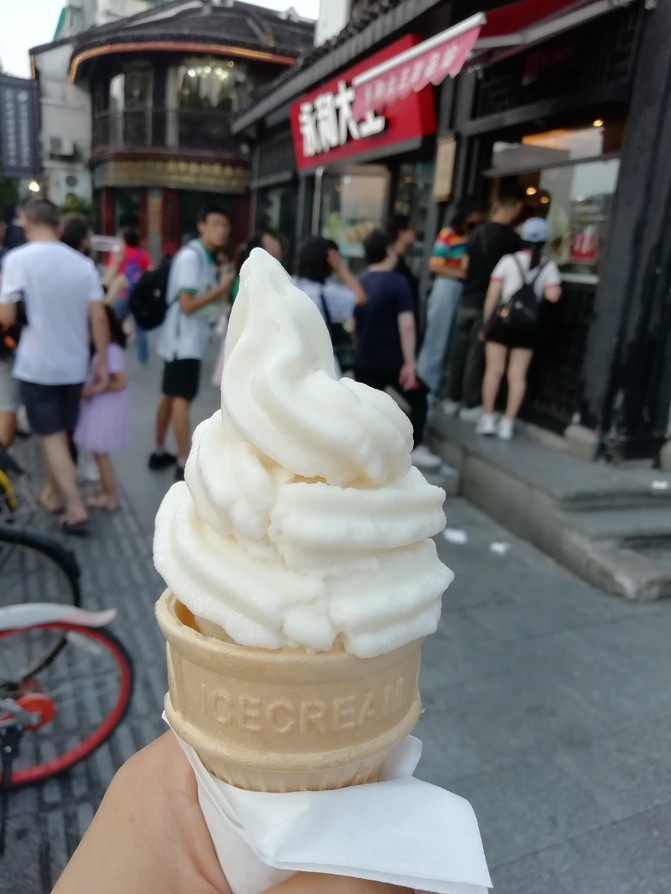
While eating soy milk ice cream, we walked up Wushan in the sunset. Tourists in twos and threes along the way. There are also local elderly people. The mountain is not high at all.

Down is Damalong. I wanted to buy some snacks inside. Unfortunately, it was late, and the small shop selling food was closing. We waited in front of a shop for a long time but no owner came out. Looking at the seemingly delicious food on the table, we didn't know what name it corresponded to, and it was difficult to sell it to ourselves according to the price displayed on the wall. So I had to find a fruit store to buy a watermelon and sit in front of the store while eating while waiting for the owner. After eating all the watermelon, I still didn't wait for the owner to come back.
Alas, this is really: the wine of wine is not afraid of deep alleys. It's delicious and I'm not afraid of no one coming.



In the evening, we rode bicycles along the West Lake to the Youth Hostel accommodation at Siyanjing that we had booked in advance.

Before unlocking the car, there was a reminder that if you parked it in the wrong place, you would have to deduct a penalty, but there was a problem here. How do you know that this is an area where you can't park when you stop? In actual operation, you can only know the result if you lock the bicycle. If you need to pay a fine, you can only admit it. So it would be great if hello bicycles could have a prompt in advance as to where they belong to the prohibited area or a way to inform them before they lock down.
Early the next morning, we rode our bike to Jingci Temple. Because I had learned a poem in the past, which was written by Yang Wanli in the Song Dynasty to send Lin Zifang out of Jingci Temple. This poem is catchy. I still remember it clearly now. After all, in June, the scenery of West Lake is different from the four seasons. The lotus leaves connecting the sky are endless green, and the lotus flowers reflecting the sun are particularly red.

Jingci Temple is a big temple. Its location was very well chosen, close to the West Lake. You can see Leifeng Tower. Local residents of Hangzhou can buy temple annual cards here, and everyone can take three incense sticks to burn incense after entering.
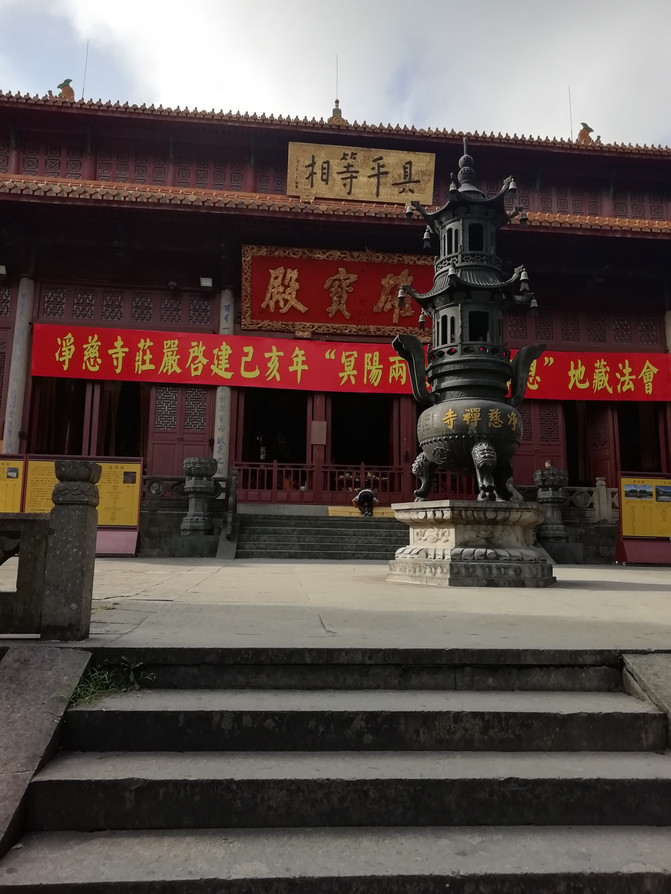
After serving incense, we bought a vegetarian goose costing seven yuan each and a string of tofu costing two yuan each. They sat under the big tree in front of the main hall and ate slowly. Many pigeons were also pacing there to find food. There are white doves and gray doves. I think the coat color of the gray and white pigeon is particularly beautiful. My son likes to feed small animals. He would save his favorite pork jerks, feed the big fat cats he saw in the accommodation store with garlic bread, and break off the delicious vegetarian geese to feed the pigeons. Seeing him get along very happily with these pigeons, he was no longer like running, grabbing and chasing small animals when he saw them when he was a child. The result was often that pigeons flew and dogs jumped, fleeing for their lives. In fact, animals and people need safety as well. When people are immature, facing certain people is like not knowing how to express themselves and get along well with small animals.
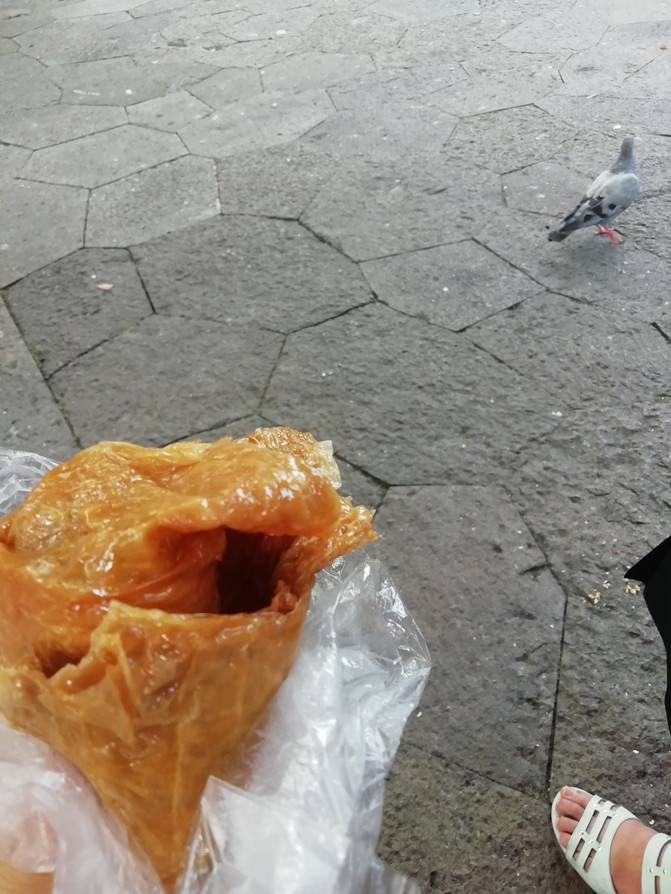
Compared with Lingyin Temple in Hangzhou, Jingci Temple also has many similarities. But it has cheaper tickets, more convenient transportation, and it is close to the West Lake. You can enter for ten yuan. The temple goes up the hillside. Behind a main hall is a round little Buddha statue standing in a small water pool, with a long-handled water spoon next to it for tourists to bathe Buddha. This long handle is as long as a clothes pole. I'll go up and show off my skills. It'll be fun.


After bathing the Buddha, you can see an exhibition of works by Master Li Shutong, You Hongyi. He is a deeply respected figure. He took everyone seriously and won everyone's respect. But just this is great. Ask yourself, it is difficult for all of us to do it. Student Feng Zikai called him the most human-like person. It means a lot.

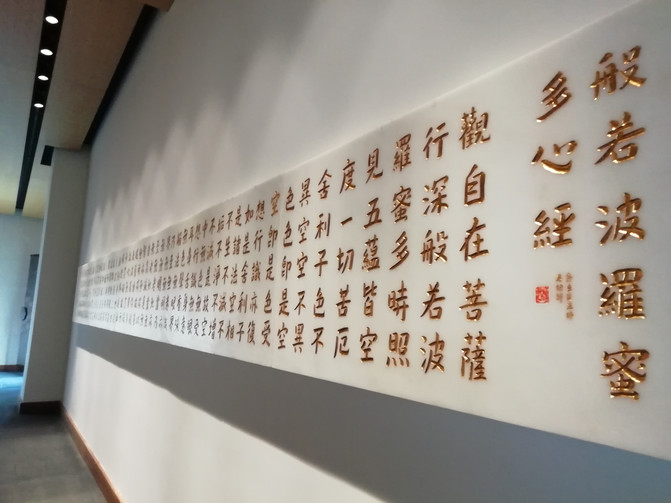
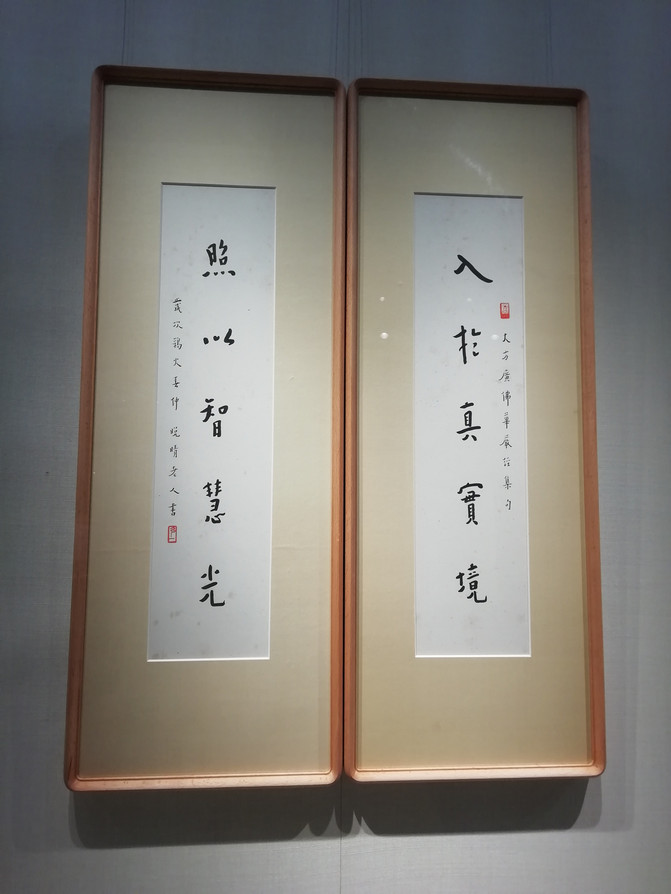

After wandering around Jingci Temple, he had been nostalgic for a long time. There was a big clock in the temple, which was the famous Nanping Evening Bell, which weighed more than ten tons. At this time, his son said that today was his birthday and he must go and ring this bell. When he struck the bell, he paid ten yuan in cash, and his son couldn't wait to go up and bump it. This bell is really very pleasant to the ears, melodious, deep and long-lasting.
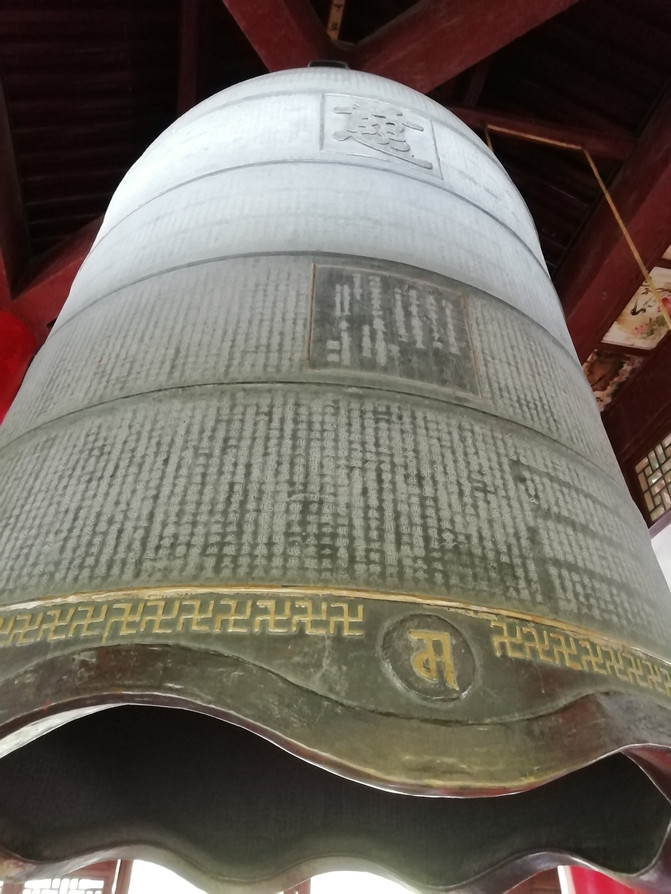

At 10:30, a local old man told us that we could buy meal tickets to eat vegetarian food at 11:00. We really wanted to eat it, but there was no time. We have to go to the next place, which is the Chinese Tea Museum.

At 11 o'clock, we arrived at the Chinese Tea Museum, which is surrounded by green mountains. At a glance, we saw short tea trees everywhere. Climbing up the mountain, a terraced field of tea trees is formed. There is tea to drink as soon as you enter the door. Green tea, yellow tea, white tea, oolong tea, black tea, all kinds of teas, I drank them all in the same small cup.

Looking at the history of tea and reading tea culture, we learned that the way we drink tea now is actually inseparable from an edict from Zhu Yuanzhang, the founder of the Ming Dynasty. It was he who issued an edict to abolish tribute tuan tea and change it to tribute leaf tea. From then on, cake tea has been replaced by loose tea.

The calligraphy beauty of a tea poem attracted me. This is a poem by Lu Tong:
One bowl kisses the throat, the second bowl breaks the loneliness, the third bowl searches the withered intestines, only five thousand volumes of words, the fourth bowl sweats lightly, and the injustices in life are scattered to the pores. Five bowls have clear muscles and bones, six bowls are immortal spirits, and seven bowls can't eat them, but I only feel that my two armpits are breezy.
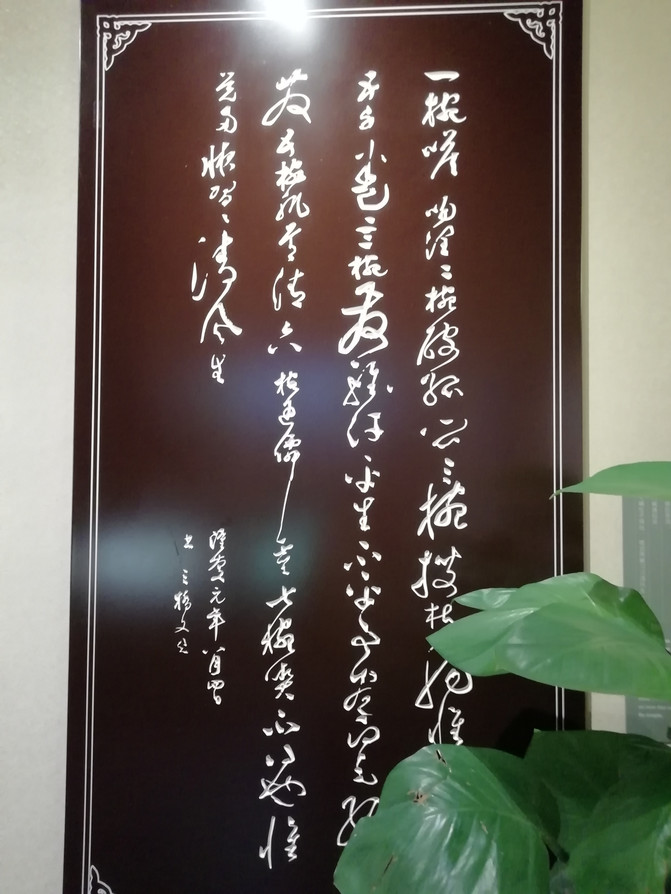
Although the Tea Museum is not large, it is also well laid out. The scenery is beautiful. We were about to leave when it rained. It rained heavily for an hour, and suddenly it ended beautifully. It was already two o'clock. This can bring us problems. There is not much time left. Should we go to the Nine Rivers and Eighteen Streams as planned? It is still a scenic spot that changes to the city direction. My son said to me very firmly: "I must go to the Jiuxi and Eighteen Streams today." When I saw the time, I was afraid I would be too late to take the bus. So I rode my bicycle on the road. If this was flat ground, I estimated that it would take me 15 minutes to get there. But in fact, this is a mountain road up and it is very difficult to ride. We can only push the bicycle and walk many times. There is a downhill road as we approach Longjing Village. The speed was too fast for me to drive, and all of a sudden I slipped and slipped with the car. Immediately two young men came up to help me and the car up, while my own son opened his mouth and laughed. I got up and took a look. The pants were torn and the skin was torn. A large piece of skin fell off my right knee and was bleeding. I called my son to come over and help. I went into Longjing Village to find a faucet to wash the wound and put on the band-aid I carried with me. God bless me, fortunately I can still walk.
The stream of the Nine Streams and Eighteen Streams is very clear and cold. There are many children holding water guns and riding small cars playing happily in the stream. For people wearing travel shoes, if they are afraid of getting their shoes wet. You can cross every creek on stones. It had rained, and the ground was slippery again, as were the stones. My son strode across the stream on the stones. I visually checked the distance between the stones and called to my son. As soon as he saw me like this, he turned around and held my hand across the stream on the stones. When my hand was in his hand, I couldn't help but feel a special feeling. When I was a child, I always walked holding his hand. Now it's his turn to hold my hand across the river. The growth of children and the reincarnation of life alternate silently in this silent hand holding.

It started to rain again. Unfortunately, we didn't have much time to stay well. We had to rush down the mountain and just saw a No. 514 bus that went directly to Hangzhou Railway Station for 5 yuan per person. From walking quickly all the way through security to entering the carriage and sitting down just as the train started.

There are scenery everywhere and feelings everywhere. Hangzhou is looking forward to holding hands with you next time.
Previous Article:In winter, we go to Tonglu to have fun. The ski resorts here are closer and warmer than the Northeast
